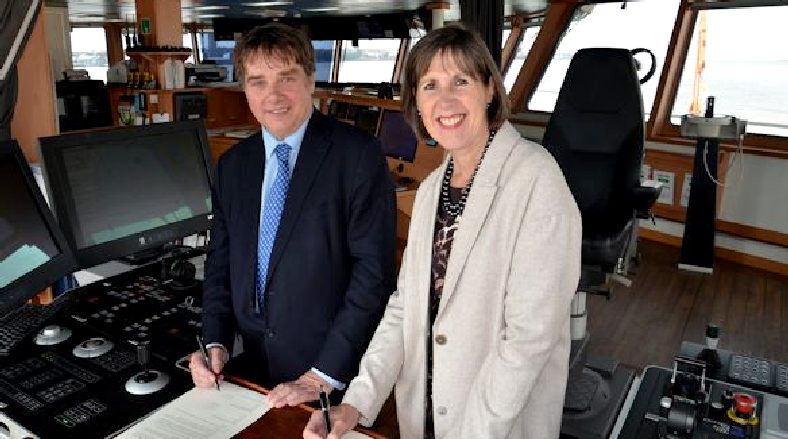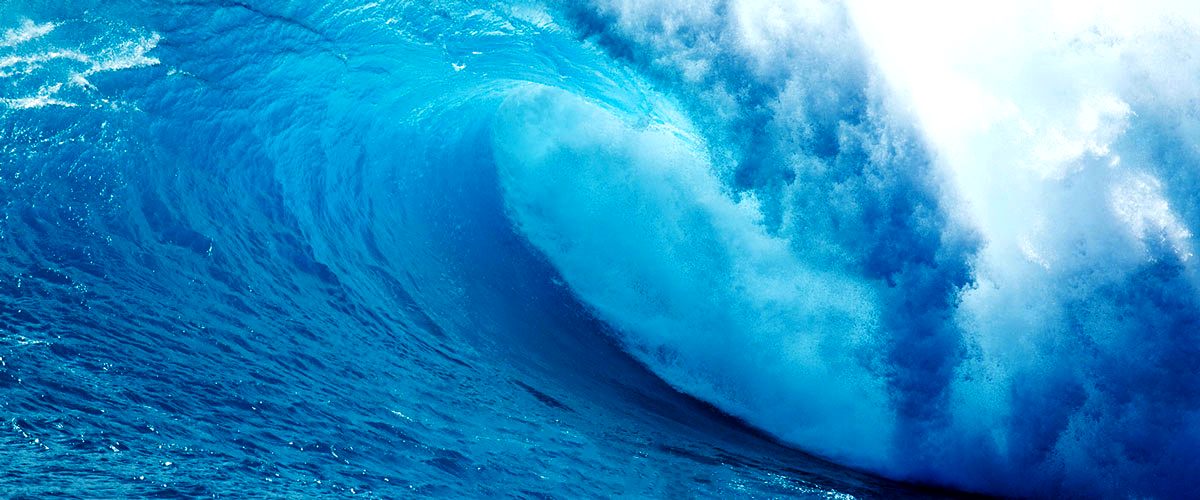|
ABOUT THE: NATIONAL OCEANOGRAPHY CENTRE
ABOUT - CONTACTS - FOUNDATION - HOME - A-Z INDEX
AWARD -
The Executive Director of the National Oceanography Centre, Professor Ed Hill OBE, was awarded an Honorary Fellowship from Bangor University for services to marine science in 2014.
OCEAN
MATTERS
The NOC agree that ocean science is too great for any one nation acting alone. The UK has a long tradition as an ocean science pioneer with world leading capabilities and the NOC is one of the top oceanographic institutions in the world. They provide the UK with the national capability needed to be a global player and to lead and participate in international co-operations.
The NOC undertakes world leading research in large scale oceanography and ocean measurement technology innovation. They work with Governments and businesses to turn great science and technology into advice and applications. The NOC supports the UK science community based in universities and smaller research institutes with scientific facilities, research infrastructure and data assets - enabling the UK to harness the full power and diversity of its scientific talent in ocean science. That said, for private research organizations it is a little bit closed shop accessing this data despite so-called knowledge transfer.
The
NOC employ around 650 staff. They are co-located at both of
their sites with leading UK Universities, allowing them to
influence students and conveniently attract more staff for marine research.
NOC research encompasses:
Marine Geoscience Marine Physics and Ocean Climate Marine Systems Modelling Ocean Biogeochemistry and Ecosystems, and Ocean Technology and Engineering.
We are home to the nation’s marine data assets; the British Oceanographic Data Centre, the British Ocean Sediment Core Research Facility, the National Marine Equipment Pool, Europe’s largest fleet of autonomous and
robotic vehicles, and we manage two state of the art research ships.
THE NOC AT THE IOC JUNE 2017
The NOC provided the UK Delegation to the Intergovernmental Oceanographic Commission of UNESCO (IOC). The delegation was led by NOC Executive Director, Prof Ed Hill, and supported by Head International and Strategic Partnerships and Marine Science Policy Adviser Alan Evans, and Rolly Rogers, Advisor Marine Law and Policy, who participated in the 50th Session of the
IOC-UNESCO Executive Council and in the 29th Session of the IOC Assembly.
Prof Ed Hill is quoted as saying: “The UK is a world-leading contributor to ocean science and has significant experience to share with the greater global ocean science community. The NOC is committed to developing international collaboration and to use our network to ensure that UK marine science expertise is available to partners around the world. Such activity is being enabled by way of UK Aid supported programmes, such as the Commonwealth Marine Economies Programme, that directly deliver the UK’s commitments to key IOC programmes whilst also complimenting future initiatives such as biodiversity beyond national jurisdiction.”
A key outcome of the Assembly is the endorsement of a proposal of an International Decade of the Ocean Science for
Sustainable Development (2021–2030), with the following preliminary objectives:
NOC CONTACTS - STAFF A TO Z
National Oceanography Centre
YOUTUBE
LINKS & REFERENCE
https://oceanconference.un.org/ http://subseaworldnews.com/2014/07/17/head-of-noc-wins-honorary-fellowship-from-bangor-university/
This website is provided on a free basis as a public information service. copyright © Cleaner Oceans Foundation Ltd (COFL) (Company No: 4674774) 2017. Solar Studios, BN271RF, United Kingdom. COFL is a charity without share capital. The names AmphiMax™, RiverVax™ and SeaVax™ are trade names used under license by COF in connection with their 'Feed The World' ocean cleaning sustainability campaign.
|



